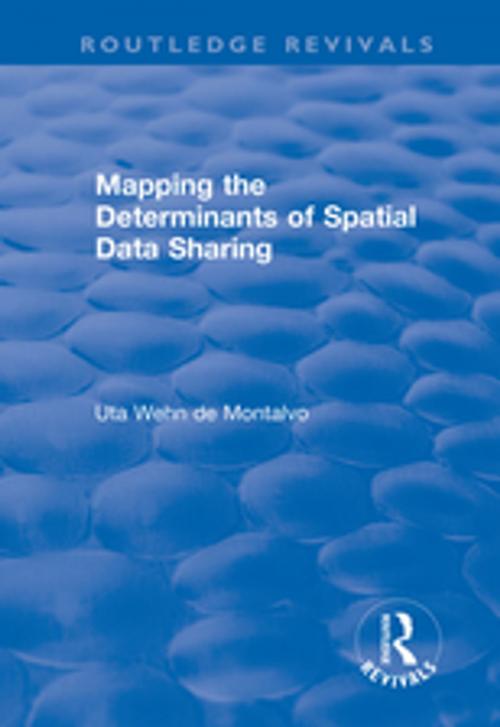Mapping the Determinants of Spatial Data Sharing
Nonfiction, Social & Cultural Studies, Social Science| Author: | Uta Wehn de Montalvo | ISBN: | 9781351769297 |
| Publisher: | Taylor and Francis | Publication: | November 1, 2017 |
| Imprint: | Routledge | Language: | English |
| Author: | Uta Wehn de Montalvo |
| ISBN: | 9781351769297 |
| Publisher: | Taylor and Francis |
| Publication: | November 1, 2017 |
| Imprint: | Routledge |
| Language: | English |
This title was first published in 2003. With the increasing use of GIS in industrialised and developing countries, the availability of spatial data has become an issue that affects many public and private sector organisations. They are faced with the high cost and substantial effort involved in the generation of spatial data and so the sharing of this data is increasingly being seen as a way of overcoming expense and easing availability and access. But this can provide a way of using GIS effectively only if the key players involved in the use and supply of spatial data are willing to share. This book employs a theory from social psychology as an organising framework to systematize the determinants of organisations' spatial data sharing behaviour. It develops a model which explains the likely willingness of key individuals within organisations to engage in spatial data exchanges across organisational boundaries and then tests this on a survey based in South Africa.
This title was first published in 2003. With the increasing use of GIS in industrialised and developing countries, the availability of spatial data has become an issue that affects many public and private sector organisations. They are faced with the high cost and substantial effort involved in the generation of spatial data and so the sharing of this data is increasingly being seen as a way of overcoming expense and easing availability and access. But this can provide a way of using GIS effectively only if the key players involved in the use and supply of spatial data are willing to share. This book employs a theory from social psychology as an organising framework to systematize the determinants of organisations' spatial data sharing behaviour. It develops a model which explains the likely willingness of key individuals within organisations to engage in spatial data exchanges across organisational boundaries and then tests this on a survey based in South Africa.















